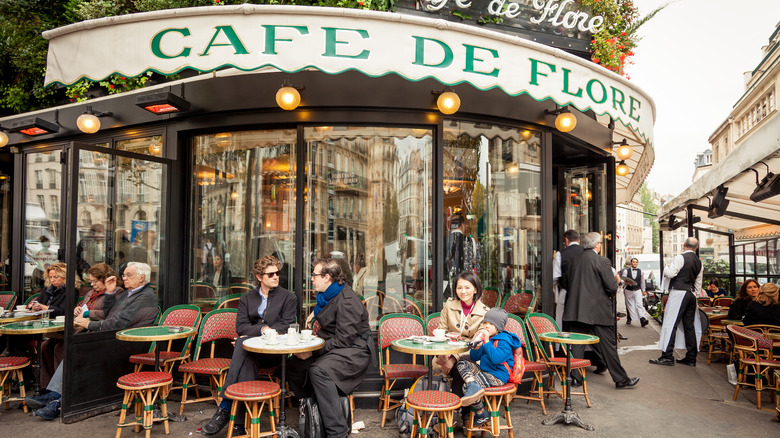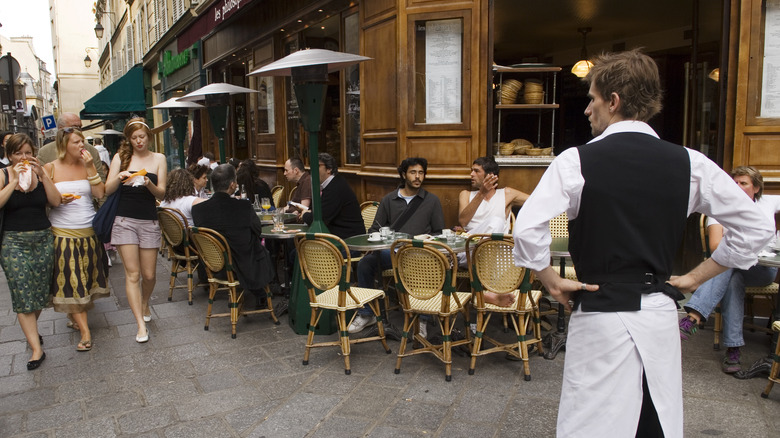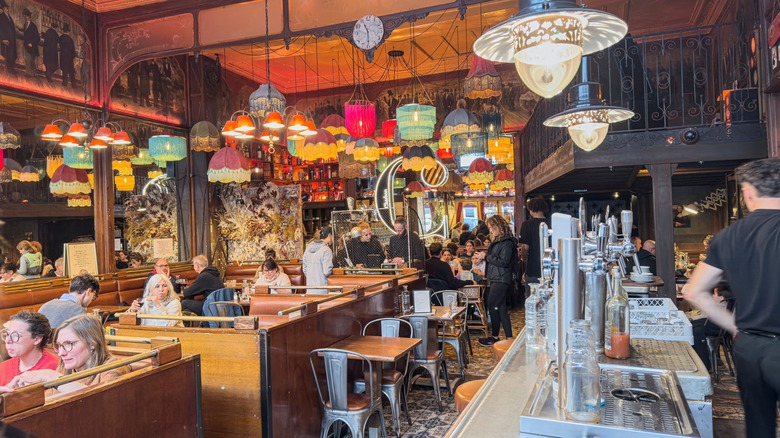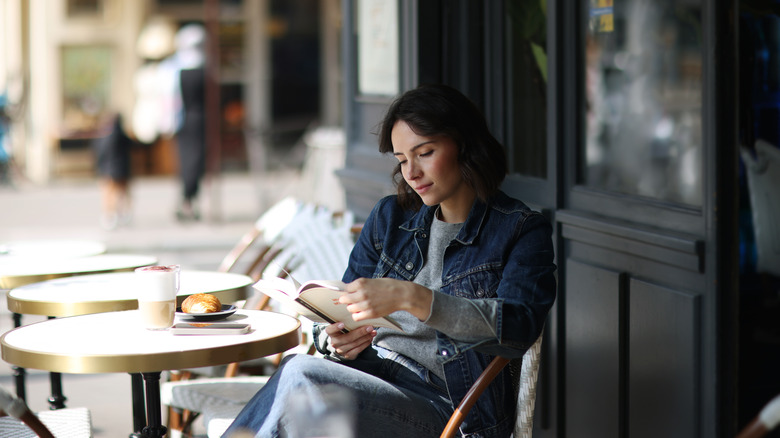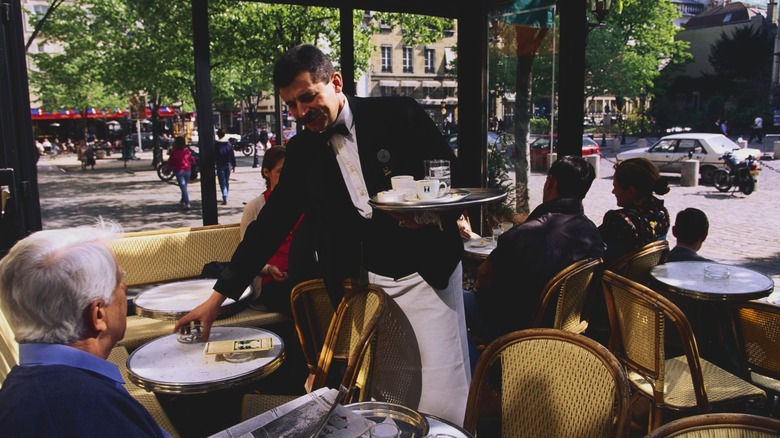Unspoken Etiquette Rules For Whiling Away The Day In A French Café
A café in France is more than a place to stop for a quick jolt of caffeine, it is a punctuation mark in the day, or an informal rendezvous — quick and inexpensive — to catch up with friends or colleagues. French geographer Philippe Gajewski wrote in an essay that "for regulars, the sense of 'home' outside the home, i.e. in the café, is remarkable and refers to the idea of the café as a place of refuge. Drinking establishments are seen as an intermediary space between work and home, between public and private space. It's a space of refuge, of in-between time, of affinities, whether these affinities are social or related to the space."
With this role as a "third place," typical Parisian cafés, with their rattan chairs and small tables for two, developed a kind of unspoken code. In smaller towns or rural areas the lines may be less defined, but they mostly still apply. Don't let the atmosphere or the serious look on the servers intimidate you into skipping the café, you would be missing out on an emblematic French ritual. Many rules you have to follow in France may feel bizarre, but that just adds to the intangible "je ne sais quoi." And as with any other interaction in France, your three best friends are "bonjour," "s'il vous plaît," and "merci." Here are some other etiquette tips to keep in mind at a French café.
Acknowledge the staff when you enter
The first unspoken rule is to acknowledge any staff within earshot with a soft "bonjour'"during the day or "bonsoir" in the evening. If you are feeling linguistically bold, you may also add a "monsieur" or "madame."It may not feel natural to you at first, but it is very jarring in the context of the local culture if you just walk in without a greeting. Circling back to the concept of a "third place," a café is not quite a public space, it is a private space open to the public.
In France it is considered rude to engage in any exchange or conversation, without first establishing a connection with a hello. Customers also say "bonjour" when entering a shop, a bakery, or picking up a magazine from the news stand. Don't be discouraged if your best efforts to crack out a few words in French get a reply in English, it is not a reflection on your language skills but just their way to aim for efficiency.
Know when to seat yourself and when to wait
To find a spot to sit, you will typically have three options: the counter, an inside table, or taking a seat outside. Keep in mind that prices may vary depending on where you sit, the cheapest being the counter. Smoking is permitted in the sidewalk or patio areas, known as "terrasse" and pooches are generally welcome, although this may vary in some establishments. Unless there is a greeter at the door, you don't need to wait to be seated. Just take any free table. If you are not planning to order food, make sure to avoid any table that has silverware or place settings, as these have been prepared for the meal service.
There is no need to call the server, they will notice you. Be patient. You can use this time to people watch, and to choose your order — being ready makes it easier on the staff. Once your order arrives you will remain mostly undisturbed until you decide it's time to leave. This may be a cultural adjustment if you are used to staff checking on you at regular intervals. In France it is considered impolite to interrupt customers. Although much will be forgiven to a visitor from abroad, it is safe to say that speaking loudly or maintaining a clearly audible conversation on your phone is one of the items on the list of things to never do when visiting Paris.
Reading is OK, but working on a laptop not so much
Typically you can stay at your table as long as you like. Reading a book or the local paper and letting the theatre of life unfold around you may be one of the best ways to experience Paris like a Parisian. Working on a laptop is not that pervasive in these settings, and some French cafés may even frown upon it. If in doubt, look around to see if any other customers are busy at their computers, or ask your server and accept graciously if the answer is no. After all, you are not here to be productive, this is your third-place refuge from the daily grind. For this very reason, coffee to-go is also not common practice at a traditional French café.
A brief note on preconceived notions: If a French server comes across as rude, consider that they may just be busy, or coming out of an intense service crunch. In France, a swift and unfussy manner is the hallmark of a consummate professional.
Paying and tipping
Once you are ready to rejoin the outside world, it is not in good form to call out to the server. It is enough to make eye contact. A raised eyebrow or a small air-writing gesture conveys the message that you are ready for "l'addition s'il vous plaît." When your server comes back with "la note" the receipt in France will indicate a total amount under "TTC." In most cases they will bring the credit card reader to the table, so you don't need to leave give them your card. You could also find that in some informal places you may be asked to take your bill back to the cashier and pay there.
Tips are not expected, as they are always included in the total in France, but leaving a little extra is always a kind gesture if you enjoyed the service. For example of you are in a group and ordered a whole lot of different drinks, you can leave a few euros on the table. It will always be appreciated. With these simple pointers, you are ready to navigate the French café experience with panache.
